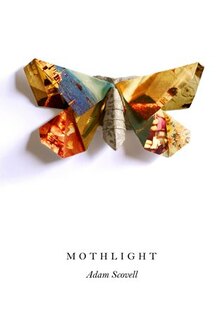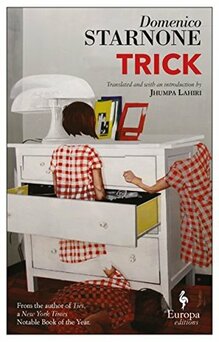Mothlight by Adam Scovell
Moving to London for his academic studies and research, he reconnects with Phyllis towards the end of her life. Together, Thomas pushing her wheelchair, they embark on moth-capturing expeditions; eventually, he becomes her carer and executor of her will. Even before her death he feels the boundaries between them blurring, his memories melding with hers.
In a house thick with the dust of decaying moth-wings, Thomas sorts through her possessions, particularly captivated by her moth collection and photographs of a woman and place he recognises although he’s sure they’ve never met. He longs to know why, despite their many conversations, Phyllis never mentioned her, and whether she might be the key to her animosity towards Billie, even when the sisters shared a house.
Thomas’ oddness is manifest in his indifference to other topics or relationships, and the formality of the voice. I shared his excitement at coming across a hummingbird hawk moth – and the symbolism in the killing and displaying of beautiful creatures is interesting, likewise the menace of parasitic wasps. I’d have appreciated more about his childhood to contextualise the mental health theme, and I couldn’t share his curiosity about the secret of Phyllis’ photos.
These – reproduced from photographs bequeathed to the author by a real-life Phyllis – accompany the text in the tradition of WG Sebald as the publisher points out. Which goes some way towards explaining why I didn’t warm to film maker Adam Scovell’s debut as much as I’d hoped – especially when the gorgeous cover is attributed to the designer of my own first two books! Thanks to Influx Press for my review copy.
Trick by Domenico Starnone translated by Jhumpa Lahiri
Seventy-five-year-old widower Daniele grapples with these issues and more when he travels from Milan to Naples to care for his grandson while the boy’s parents, both mathematicians, attend a residential conference. Four-year-old Mario is a delightful amalgam of precociousness and bossiness, determined to capitalise on his mother’s father’s stay. Weary from old age and recent surgery, the reader wonders how Daniele will cope.
On top of this, the apartment where his daughter and her family now live is the one in which he spent his childhood years. He’s haunted by memories of his mother’s fear of the windy balcony and his rage at the father who condemned them to poverty by gambling away his money at cards. Daniele couldn’t wait to leave. Driven by his mother’s faith in his artistic ability, he’s channelled his energies into his work as an illustrator, to the neglect of family and social life. Now, insulted by an editor’s feedback on a recent commission, as well as the raw reaction of the four-year-old boy, he wonders not only if his talent has left him but whether it was ever as great as he believed.
With so much to delight the reader in the battle for supremacy between infancy and age, we almost don’t need the trick Mario plays on his grandfather, putting them both at risk. But it beautifully exemplifies the precarious nature of what seems simple on the surface, spending a few days looking after a lively young child.
There’s an extra layer of reward in this novel for those familiar with the short story, “The Jolly Corner”, by Henry James. As the translator outlines in an introduction, there are parallels here with Trick. This is also the story Daniele is illustrating and an appendix of notes and sketches from his diary revisits some of the novel’s material from a different angle. For me, unfamiliar with the story, it neither enhanced nor detracted from my reading of the text.
Domenico Starnone is the author of thirteen works of fiction, this being the third translated into English from the original Italian. I can only hope that publishers Europa Editions, who provided my review copy, have plans for more.
Identity is a common theme for readers and writers of fiction; it just happens to be the common thread between the stories in my collection, Becoming Someone. Two of those particularly connect with the issues in these reviews: “Habeas Corpus” in which a professional photographer uses selfies to recover his sense of self; “I Want Doesn’t Get” about a woman whose identity has merged with her mother’s. You can hear me read the opening of the first and the entirety of the second:
| | |
I’ve been operating under par for the past week or so, and had no new thoughts for last week’s FF challenge. But editing my possibly third novel, Matilda Windsor Is Coming Home about a brother and sister separated for fifty years against the backdrop of the longstay psychiatric hospital closures, I thought I could conjure 99-words to include a sign. Even so, I’m not sure I managed to recycle the opening of chapter 2 into a story. See what you think! PS the links to the reviews are images and lepidoptera.
A white P against a blue background: Janice was almost level with the sign when she swung the wheel and shunted into the layby. A horn blared as a truck sped past.
Silencing the engine, she clambered out onto the verge. Shaking both fists, she dropped her jaw and screamed.
Traffic roared by, indifferent. The slate fellside frowned as it had done for millennia. A small copper danced from daisy to dandelion, oblivious.
Her throat remained raw from their argument. Was love as ephemeral as that butterfly or would theirs emerge resplendent from this ice age, like the land?

























 RSS Feed
RSS Feed





















